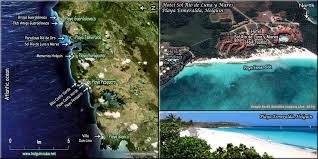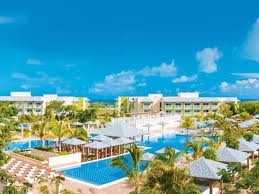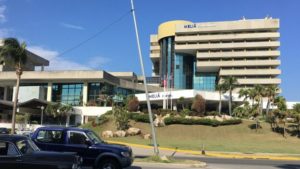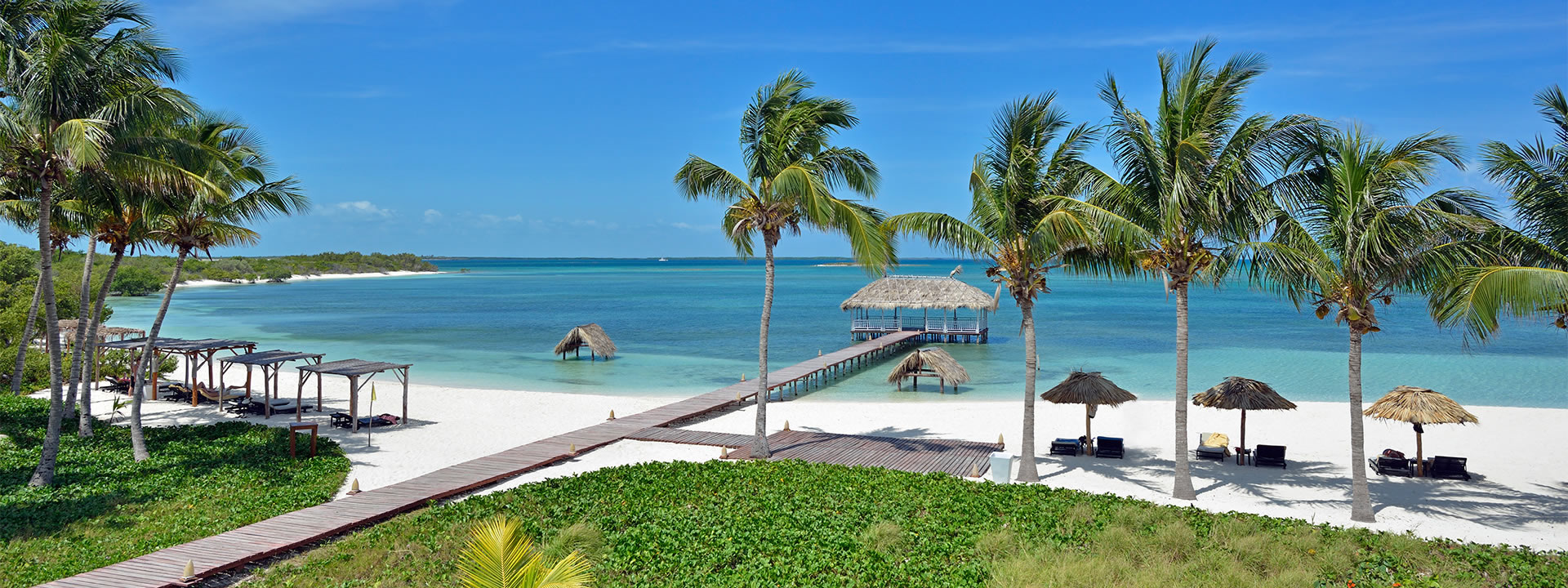 PRIMERA DEMANDA ESPAÑOLA A HOTELERA “MELIÁ” POR PROPIEDADES CONFISCADAS EN CUBA.
PRIMERA DEMANDA ESPAÑOLA A HOTELERA “MELIÁ” POR PROPIEDADES CONFISCADAS EN CUBA.
Los Sánchez Hill, descendientes del empresario Rafael Lucas Sánchez Hill, han presentado el pasado 3 de junio una demanda contra la cadena hotelera Meliá Hotels International por explotar dos hoteles, ‘Paradisus Rio de Oro’ y ‘Sol Rio y Luna Mares’, en unos terrenos que les fueron expropiados tras la Revolución cubana de 1959. Se trata de la primera demanda que se presenta en España tras la activación completa de la Ley Helms-Burton.
Según consta en la documentación a la que ha tenido acceso El Confidencial, los Sánchez Hill, de origen cubano y hoy residentes en EEUU, eran dueños del ingenio azucarero Central Santa Lucía, una hacienda de 485,6 kilómetros cuadrados localizada en Holguín, al noroeste de la isla de Cuba. Tras la subida de Fidel Castro al poder, el gobierno expropió a la familia su hacienda en virtud de la Ley 890 del Gobierno Revolucionario que permitía la nacionalización de las grandes empresas industriales y comerciales.
Esos edificios, que actualmente pertenecen a la compañía cubana Grupo Gaviota, alojan actualmente dos hoteles que adminstra la cadena hotelera española. Es decir, la propiedad no es de Meliá, sino de Gaviota. No obstante, la activación del título III de la Ley Helms-Burton permite reclamar una indemnización a las compañías, extranjeras o no, que se han beneficiado de la explotación de bienes expropiados. Y eso es lo que reclaman los Sánchez Hill. Una compensación de como mínimo 10 millones de euros, según la citada demanda.
Los abogados Carlos A. Rodríguez y Ana C. Malave, del despacho Rivero Mestre de Miami, confirman el aluvión de consultas de familias que sufrieron expropiaciones tras la revolución cubana. En concreto, la familia reclama en un tribunal de Palma de Mallorca, sede social de Meliá, que la compañía les indemnice con una cantidad equivalente a los beneficios que hayan obtenido de estos hoteles durante los cinco últimos años. Aunque la cantidad final no está decidida a falta del análisis de un perito, los Sánchez Hill han calculado que la cifra debería moverse en el entorno de los 10 millones y en ningún caso menos de 600.000 euros.
Según explican los letrados en el escrito, esta demanda es el resultado de la “actitud” de Meliá para llegar a un acuerdo extrajudicial. “El carácter ilícito de dicha confiscación es conocido por Meliá, quien durante los últimos 20 años ha hecho caso omiso a las reclamaciones de aquellas empresas y familias a costa de las que se lucra”, reza la demanda. Y es que entre 1999 y 2004, con la Helms-Burton ‘dormida’, ambas partes ya mantuvieron negociaciones para tratar de llegar a un acuerdo amistoso. Fueron en total cuatro reuniones en las que participaron los abogados de la familia y en las que, siempre según la demanda, hubo visos de acuerdo, pero nunca se llegó a concretar nada. Por aquel entonces, (casi) nadie pensaba que algún día se activaría la polémica ley.
Actualmente, la hotelera española admnistra algo más de 30 hoteles en Cuba frente a los 20 de Iberostar y los tres de Barceló
Los interlocutores de aquellas negociaciones fueron el abogado Nicolás Gutiérrez por parte de los Sánchez Hill y el despacho Jones Day y Jaime Puig por parte de Meliá. Actualmente, la hotelera española administra algo más de 30 hoteles en Cuba frente a los 20 de Iberostar y los tres de Barceló, lo que la convierte en la hotelera española con mayor exposición a la Helms-Burton.
El Confidencial se ha puesto en contacto con Meliá para ampliar esta información sin recibir respuesta al cierre de este artículo. En el último comunicado emitido por la compañía sobre este asunto, Meliá señaló que “opera legítimamente en Cuba” y que continúa operando “con plena normalidad” en la isla tras la activación de la Helms-Burton. Tras la presentación de la demanda, Meliá tiene 20 días para responder.
 FIRST DEMAND IN SPAIN TO HOTELIER “MELIÁ” FOR PROPERTIES CONFISCATED IN CUBA.
FIRST DEMAND IN SPAIN TO HOTELIER “MELIÁ” FOR PROPERTIES CONFISCATED IN CUBA.
The Sanchez Hill, descendants of entrepreneur Rafael Lucas Sánchez Hill, presented on June 3 a lawsuit against the hotel chain Meliá Hotels International for exploiting two hotels, ‘Paradisus Rio de Oro’ and ‘Sol Rio and Luna Mares’, in about lands that were expropriated after the Cuban Revolution of 1959. It is the first demand that is presented in Spain after the complete activation of the Helms-Burton Law.
According to the documentation to which El Confidential has had access, the Sanchez Hill, of Cuban origin and now residing in the United States, owned the sugar mill Central Santa Lucía, a 485.6 square kilometer hacienda located in Holguín, to the northwest of the island of Cuba. After the rise of Fidel Castro to power, the government expropriated the family’s property under Law 890 of the Revolutionary Government that allowed the nationalization of large industrial and commercial enterprises.
These buildings, which currently belong to the Cuban company Grupo Gaviota, currently house two hotels managed by the Spanish hotel chain. That is, the property is not Meliá, but Gaviota. However, the activation of Title III of the Helms-Burton Act allows claiming compensation to companies, foreign or not, that have benefited from the exploitation of expropriated property. And that’s what the Sanchez Hill claim. Compensation of at least 10 million euros, according to the aforementioned demand.
The lawyers Carlos A. Rodríguez and Ana C. Malave, of the Rivero Mestre office in Miami, confirm the flood of consultations of families that suffered expropriations after the Cuban revolution. Specifically, the family claims in a court in Palma de Mallorca, the headquarters of Meliá, that the company compensates them with an amount equivalent to the benefits they have obtained from these hotels during the last five years. Although the final amount is not decided in the absence of an expert’s analysis, Sanchez Hill has calculated that the figure should move around 10 million and in no case less than 600,000 euros.
According to the lawyers explained in the letter, this lawsuit is the result of the “attitude” of Meliá to reach an out-of-court settlement. “The illicit nature of such confiscation is known to Meliá, who for the past 20 years has ignored the claims of those companies and families at the expense of those who profit,” says the lawsuit. And between 1999 and 2004, with the Helms-Burton ‘asleep’, both parties already had negotiations to try to reach an amicable agreement. There were a total of four meetings in which the family’s lawyers participated, and in which, according to the lawsuit, there were signs of agreement, but nothing was ever finalized. At that time, (almost) nobody thought that someday the controversial law would be activated.
Currently, the Spanish hotelier manages more than 30 hotels in Cuba compared to 20 Iberostar hotels and three Barceló hotels
The interlocutors of those negotiations were the lawyer Nicolás Gutiérrez on behalf of the Sánchez Hill and the office Jones Day and Jaime Puig on the part of Meliá. Currently, the Spanish hotelier manages more than 30 hotels in Cuba compared to 20 Iberostar and Barceló three, which makes it the Spanish hotelier with greater exposure to Helms-Burton.
The Confidential has contacted Meliá to expand this information without receiving a response to the closure of this article. In the last statement issued by the company on this matter, Meliá said that it “operates legitimately in Cuba” and that it continues to operate “with full normality” on the island after the activation of the Helms-Burton. After the presentation of the lawsuit, Meliá has 20 days to respond.
Agencies/ ElConfidencial/ Alvaro G. Zarzalejos/ Internet Photos/ Extractos/ Excerpts/ Arnoldo Varona/ www.TheCubanHistory.com
THE CUBAN HISTORY, HOLLYWOOD.



 < FIRST DEMAND IN SPAIN to Hotelier "MELIÁ" for Properties Confiscated in Cuba.
< FIRST DEMAND IN SPAIN to Hotelier "MELIÁ" for Properties Confiscated in Cuba.






